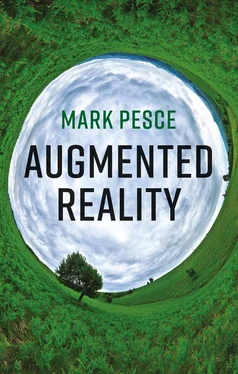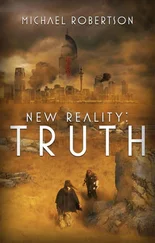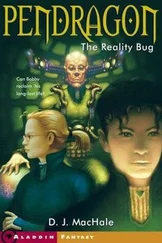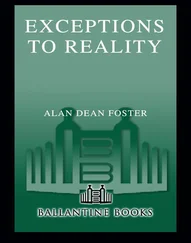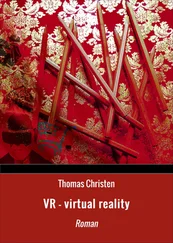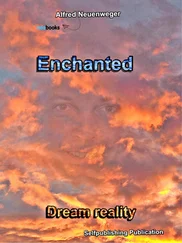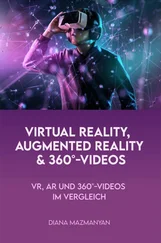politybooks.com
Augmented Reality had its genesis in Mark Zuckerberg’s 2017 F8 keynote, recounted at length in chapter 5. As the implications of Zuckerberg’s assertion of Facebook’s “right to write” became clearer, together with the first reports of Cambridge Analytica’s use of Facebook’s data set to manipulate election outcomes, and the reports in The Australian about the targeting of emotionally vulnerable teenagers, I formulated a thesis about the shape of things to come. Reaching out to my friend and Meanjin editor-in-chief Jonathan Green, he quickly commissioned “The Last Days of Reality” for Meanjin ’s Summer 2017 issue. That essay represented a first pass at the ideas explored at length in this book, and I am grateful for the opportunity that he provided me.
Although I had given some thought to expanding that title to book length, my efforts proved unsuccessful until I received an unexpected email from Mary Savigar at Polity. Mary would go on to become the commissioning editor for Augmented Reality . Although I took my time with the drafting, submission, re-drafting, and resubmission of the proposal for this book, Mary was unfailingly patient, supportive, and insightful; this book owes everything to her persistence.
My friend and colleague in the Media and Communications Department at the University of Sydney, Dr. Fiona Martin, gave me several opportunities to give lectures on the topics explored in this book, helping me to better understand my own themes and how to express them clearly to a lay audience. Fiona was also instrumental in convincing me that this book needed to be written for Polity – and for all of this she has my sincerest gratitude.
Huge appreciation for the folks at Toby’s, who kept me well fed and caffeinated during my many breakfast writing sessions.
To everyone else who encouraged, supported, supplied, and refined (you know who you are), my sincerest thanks.
I alone am responsible for any errors that may have found their way into this text.
Introduction: A Riot in Rhodes
On the evening of July 12, 2016, a large crowd gathered at Peg Paterson Park. Very little distinguishes that park – located in Rhodes, New South Wales – from any of the others threaded among Sydney’s vast and growing suburbs. Surrounded on three sides by tall apartment buildings, the park offers a bit of green space and some basic playground facilities, the kind of space ideal for walking the dog – or letting the kids have a bit of well-supervised exercise.
On that evening, the draw for people crowding into Peg Paterson Park had nothing to do with reality. Instead, the virtual world of data and networks had exploded into the physical world of places and people, an eruption that began six days earlier, when a small games company named Niantic released a new smartphone app.
Niantic’s app used the smartphone’s camera and other sensors – including Global Positioning System (GPS), which provides accurate coordinates for any location on Earth’s surface – mixing all of this input together, adding to it, then displaying that synthesis to the smartphone’s screen. The world portrayed on-screen, though rendered in cartoon-like detail, looked similar to the real world, reduced to its essential figures and landmarks. Within this simplified landscape Niantic had situated synthetic, imaginary creatures – Pokémon .
Already 20 years old, the Pokémon franchise of card and video games, television series, films, books, and comics had revived the fortunes of the once-dominant/now-struggling video gaming firm Nintendo. The card games became a craze among 8- to 10-year-olds around the world, with sales reaching tens of billions of cards. A whole generation had played Pokémon , maintaining a nostalgic love for the imaginary (and cute) monsters.
Niantic’s app – Pokémon Go – came along at just the right moment to mine that nostalgia within a generation who had come of age in the era of the smartphone. Millennials with the latest iPhone and Android models found Pokémon Go drained their smartphone batteries like no app ever had – and turned the real world into the universe of Pokémon .
While the card and video games might allow players to imagine another universe where Pokémon freely wandered about, Pokémon Go united the real world – as sensed by smartphone camera and GPS – with all of the various Pokémon , each with their unique look, sound, and capabilities. Within its app, Niantic had lured Pokémon out of imagination and into reality.
Into that newly mixed-up world of real and imaginary, Niantic had added other features, including “Pokéstops” – landmarks keyed to real-world coordinates via GPS, and offering valuable items for the Pokémon Go player’s inventory – the sorts of tools that would make it easier to catch and train Pokémon.
Wanting to test its new app – and the huge network of cloud-based computers that supported it – Niantic released the app in stages, nation by nation, over a period of months. Australia, as a mid-sized nation with a high rate of smartphone ownership, got it first – and it quickly became a craze. As friend told friend, Australians began to play Pokémon Go in vast numbers. Groups of friends struck out together in search of Pokémon and Pokéstops. Hundreds of thousands of players went for a wander around their suburbs, looking for what they might find. For a few days it seemed as though “Gotta Catch ’Em All” had become the national slogan.
As a well-visited landmark in the suburb of Rhodes – mapped out by players of Niantic’s other app, Ingress – Peg Paterson Park had several Pokéstops. The first folks to stumble upon them told their friends, who told their friends, who told their friends – and those friends shared it on Facebook. All of which meant Peg Paterson Park – conveniently located just a 2-minute stroll from Rhodes’ railway station – got very popular, very fast.
Niantic added another clever feature to Pokémon Go – lures. Lay down a lure and the chances of attracting a rare and valuable Pokémon increased dramatically. But lures only worked for an hour before they vanished, and – unlike the app itself – lures cost money. Not a lot of money, though – just a dollar. The perfect reason to spend: Make a fun game even more fun.
Players soon learned that lures worked for everyone – not just the player who plumped for the lure. Everyone else around benefited. Drop a lure, and expect to see a few other Pokémon Go players turn up – lured in by that lure.
Players at Peg Paterson Park dropped lure after lure – drawing in many rare Pokémon. 1Players would message other friends – playing somewhere else – telling them to get over to Peg Paterson Park, because it had suddenly become easy to catch rare Pokémon. That combination of Pokéstops and lures, broadcast and amplified by social media, generated a vast crowd – hundreds of players all crowded into a tiny suburban park.
That might have been a matter of little consequence during daytime hours. But as it passed midnight (on a weeknight!), and the crowd showed no signs of dispersing, the police arrived – alerted by noise complaints from the apartment dwellers surrounding the Park, 2who couldn’t get to sleep over the hubbub of happy players. The police ticketed the double-parked cars and asked everyone else to move on – which, eventually, they did.
While players’ lures quickly vanished, those Pokéstops remained in Peg Paterson Park – drawing players back again, on successive nights. 3It never again reached the intensity of that Tuesday evening, but in the aftermath, it became apparent that Niantic had done something unexpectedly potent when it located those Pokéstops in the park, something that perhaps it had not even intended to do. Pokémon Go changed players’ relationship to space, and changed their behavior within it.
Читать дальше
